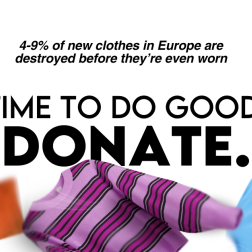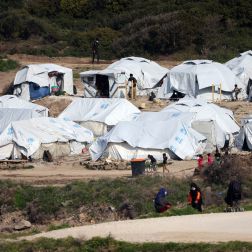- 4 mins read time
- Published: 22nd January 2018
“I can starve, but my children can’t” – The true cost of inequality
The figures are staggering. Eighty-two percent of the wealth generated in 2017 went to just one percent of the world’s population. In contrast, the 3.7 billion people who make up the poorest half of the world didn’t make a penny more.
Not only that, billionaire wealth grew by $762 billion – that’s enough money to stamp out extreme poverty seven times over. Last year also saw the biggest-ever increase in billionaires, with one person becoming a member of the super-rich club every two days. Moreover, nine out of 10 of these new billionaires were men. Meanwhile, behind the scenes, women provided $10 trillion in unpaid care to support the global economy.
But these are just numbers. The true cost of inequality is revealed through the testimonies of women like Lan. Her story shows the reality of a truly unjust global village, where a small minority controls the majority of the wealth.
Lan is 32 and a mother of two. Her husband can’t work due to illness so she is the family’s sole breadwinner. Her job in the garment industry in Dong Nai province, near Ho Chi Minh City, Vietnam, is both exhausting and insecure. She works at least nine hours a day, six days a week, earning just $1 an hour, to make shoes for global fashion brands. Despite working on 1,200 pairs of shoes a day, she can’t afford to buy even one pair for her 12-year-old son.
Worse still, she is separated from her son and her 15-month-old daughter who live 1,500km away in her home province of Thanh Hoa, where her parents look after them. Lan moved away to work so that her children could have a better future – but her low wages and the high cost of living means that she can’t afford for them to live with her full time. Organising regular visits home is almost impossible too because travel is expensive and Lan is rarely able to take annual leave.

Lan soothes her 15-month-old daughter Ha* in the small room she rents in Dong Nai province near Ho Chi Minh City, Vietnam. Ha*, who has been struggling in her mother’s absence, had to take a 34-hour bus ride with her grandmother to visit Lan. Photo: Sam Tarling/Oxfam

Lan and her 12-year-old son Sang* play with a kitten at her parents’ house in Thanh Hoa province. It’s the first time she has seen her family in nine months. Photo: Sam Tarling/Oxfam
"It’s hard because my children cannot live with me,” says Lan. “I feel very sorry for my children. They always ask to come here, but I don't allow it. I cannot afford to raise them here. My son really wants to come live with me and study here.
“They have to be left with relatives because I don’t have enough money to feed them and pick them up from school. I miss them as I’m far away. I want to be close to my children.
“It’s hard to say goodbye to kids because they want me to stay. When I’m back at home, I think about my children and I do not want to leave them and go back here to work.”
She adds: “I can’t let my children starve or feel that they are not as good as other kids. Well, my kids are not equal to other children because we don’t have money. I can starve, but my children can’t.
"In my future, I want to work close to home with a steady salary so I can be close to home, close to my children so I can care for them and they can be like their friends. I want to work the hours which have better pay, so I can have my children with me and I can raise them well with good educations. I want my children to be close to their parents so they can have a better life.”
Inequality is keeping people trapped in poverty, but together we can fight it.
Please join our campaign to Even it Up.
Thank you.
*Names have been changed




